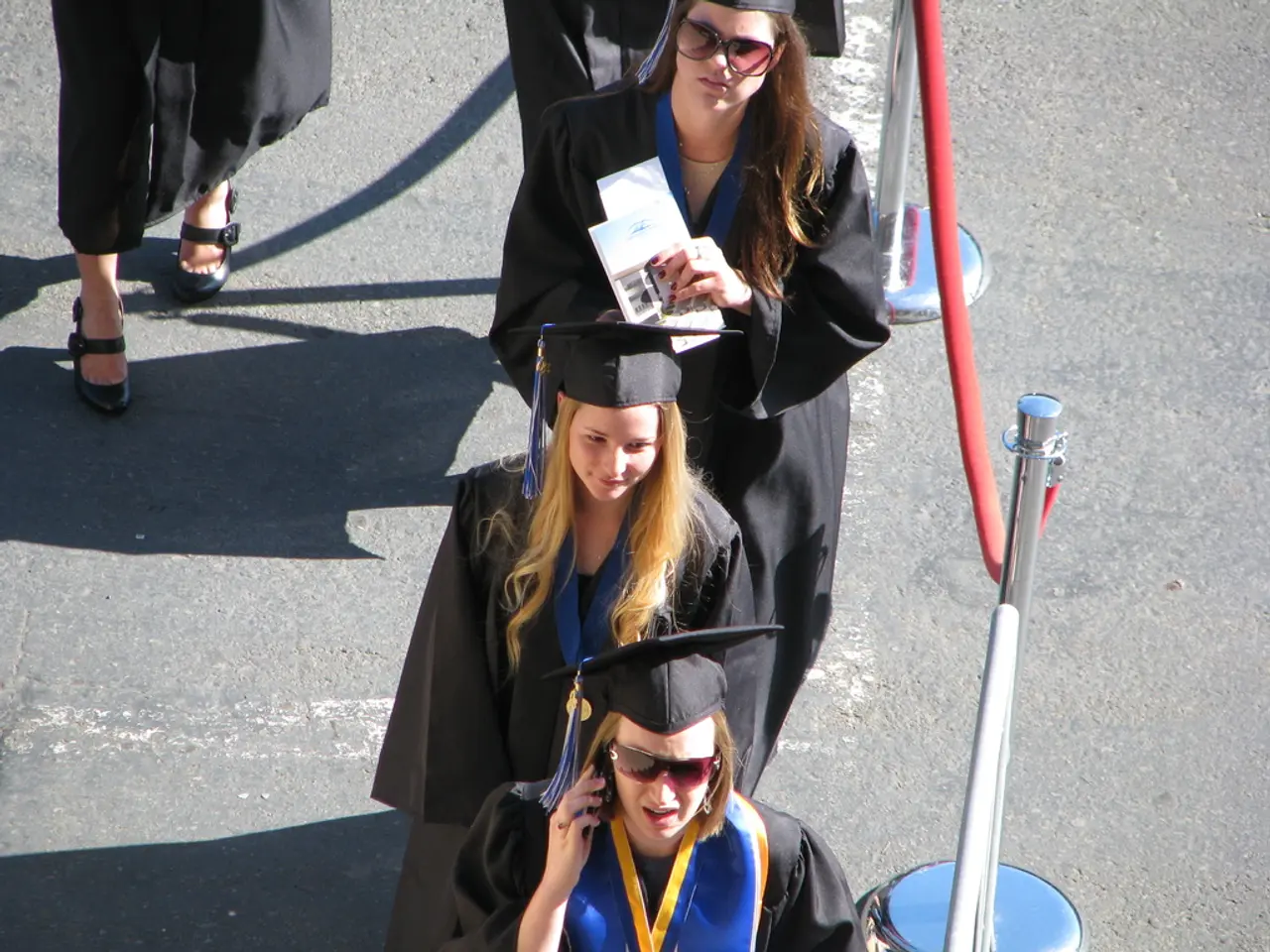Days of anticipation for a job applicant
In a comprehensive survey conducted by Synergy University in 2024, the most prevalent fears among prospective students were identified. The study revealed that the primary concerns revolve around academic pressure, loneliness, interpersonal abuse, and mental health issues such as anxiety and depression.
The survey, which polled over 5,000 prospective students, found that 14% of students worry about paying for accommodation in a new city, while 26% experienced strong anxiety during the admissions campaign, a slight decrease from 30% last year. On a positive note, those who reported mild anxiety or none at all increased to 11% from 7% last year.
The interaction between loneliness and interpersonal abuse was found to increase the odds of suicidal thoughts and plans among young adults in higher education, even when other factors like socioeconomic status and mental health issues are taken into account. This suggests that fears around social isolation and abuse contribute substantially to student anxiety about university life.
Academic workload and time pressures cause some students to rely heavily on AI tools, which may add fears about academic performance and learning efficacy.
Other significant fears include the fear of not mastering knowledge and skills (13%), working in a field unrelated to their major (28%), and criticism and persecution from other students (24%). Additionally, 10% of students think they'll receive a small scholarship, and 23% fear receiving an education that won't help them get a job.
Furthermore, the survey results showed that 42% of applicants in 2023 feared becoming disillusioned with their chosen major over time. The main fears among applicants include not getting into their desired university (39%), not getting into their desired faculty (12%), not getting a spot on the budget (21%), and not getting admitted at all (28%).
In 2023, the biggest fear for potential freshmen was not scoring enough EGE points for admission to their chosen university (almost 40%). In 2024, 40% of applicants fear being expelled due to poor performance, a decrease from 45% in 2023.
Other notable fears include the fear of losing old friends (7%), becoming unemployed (21%), becoming bad specialists (18%), not finding friends and fitting in (47%), losing interest in their chosen profession (33%), balancing study and work (45%), not finding common ground with any professors (22%), and not getting a spot on the budget or admission to any higher education institution at all (30% and 20%, respectively).
Artem Vasilyev, Rector of Synergy University, stated that the goal is to make the admission process more comfortable and help applicants make an informed decision. The findings from this survey will undoubtedly help the university in its efforts to address the concerns of prospective students and create a supportive environment for their academic and personal growth.
[1] Xie, M., & Mok, K. H. (2020). The association of loneliness with suicidal ideation and plans among Chinese university students: A longitudinal study. Journal of Affective Disorders, 263, 337-343.
[2] Xu, Y., & Hu, Y. (2021). The impact of AI on students' academic performance and learning efficacy: A systematic review. Computers & Education, 169, 103902.
- In addition to academic pressure and mental health issues, the survey revealed that 14% of students express concerns about managing personal-finance matters, such as paying for accommodation in a new city.
- The study also found that an increasing number of students (11%) reported mild anxiety or no anxiety at all, suggesting a positive shift in the mental-health landscape of higher education.
- The interaction between loneliness and interpersonal abuse, as reported in the literature [1], may significantly impact the mental health of students, increasing the odds of suicidal thoughts and plans. Therefore, addressing social isolation and interpersonal abuse in the context of science, health-and-wellness, and education-and-self-development is crucial for university students.




